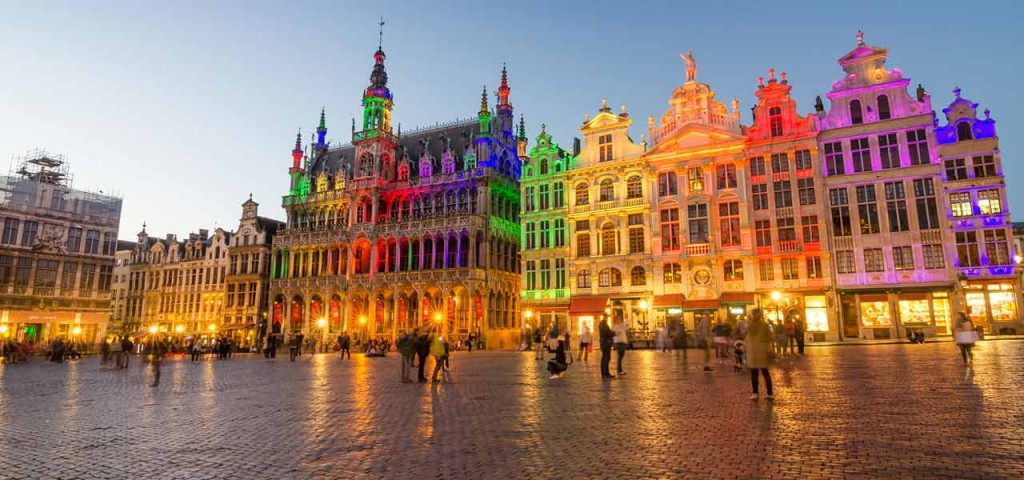Belgium is a European country that borders France, Germany, Luxemberg, and the Netherlands. Belgium first gained independence in 1830 when the country seceded from the Netherlands. Today, the total population hovers around 11 million people and is similar in size to the state of Maryland. The Belgian government is a Federal Constitutional Monarchy with two legislative houses, the Senate and the Chamber of Representatives. Since the Middle Ages, Belgium has always been one the richest and most developed regions in the world. It is known as the “Crossroad of Europe” because it promotes trade and sits in the middle of the European economic center. Belgium has a free-enterprise economy with very close relations with the rest of Europe. The capital of Belgium, Brussels, is the headquarters of the European Union and North Atlantic Treaty Organization.
Belgium is a nation that is made up of many different backgrounds of people because it was controlled by different foreign powers for centuries. Therefore, there exist three official languages (Dutch (Flemish), French, German). Dutch speakers make up 60% of the population, while French speakers make up close to 40% of the population. The country also divides up into 3 regions: Flanders in the north (Dutch), Wallonia in the south (French), Brussles-Capital Region (Bilingual). In addition, Belgium had seen a vast amount of immigrants enter the country following WWII. These individuals primary have migrated from Italy, the Middle East, and North Africa. A large Islamic presence has recently grown in Belgium over the past decade.

Colorful lights shine at night in the Grand Place in Brussels, Belgium. Source: https://www.easyjet.com/en/holidays/shared/images/guides/belgium/brussels/brussels-city.jpg
Although many different groups of people live in Belgium, there is a common love for a good quality of life. This includes excellent food and beverages, such as Belgian beer and chocolate, in addition to reliable medical and social services. With a literacy rate of 99%, Belgium also enjoys an intellectual society. And of course, we cannot forget the Belgium love of football…
By Nick Salzman, Sam Skinner, and Will Feldman
Home Country History Team History Rise of the Red Devils Euro 2016 Expectations Belgian Players to Watch at EURO 2016 A New National Identity Symbol for Unity
How to Cite this Page: “Country History” Written by Nick Salzman, Will Feldman, and Sam Skinner (2016), European Cup 2016 Guide, Soccer Politics Blog, Duke University, http://sites.duke.edu/wcwp/tournament-guides/european-cup-2016-guide/belgium/country-history/(accessed on (date)).

